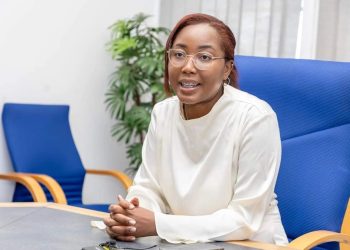
By Stantin Siebritz
In the rapidly evolving landscape of artificial intelligence, yesterday’s speculations are quickly becoming today’s reality. Huawei’s latest Ascend 910D AI chip exemplifies this trend perfectly.
Unveiled as a direct response to restricted access to American technologies such as Nvidia’s flagship H100 chip, the Ascend 910D is no longer mere speculation; it represents a tangible leap towards AI independence. Huawei is determined to demonstrate that when international markets close their doors, innovation can flourish domestically.
Similarly, Intel’s Gaudi 3 accelerator has also emerged as a cost-effective challenger in a market historically dominated by Nvidia.
For African enterprises and innovators, this intensified competition in AI hardware translates into greater choice and potentially more affordable options to deploy robust AI solutions.
Meanwhile, on the software front, the emergence of Gwen 3 marks another transition from speculation to reality. Previously, powerful multimodal AI models were largely proprietary and closely guarded, reserved for a few tech giants.
Now, models such as Gwen 3 are not only open-source but also demonstrate capabilities surpassing established entities such as OpenAI and DeepSeek in certain benchmarks.
By “multimodal,” we mean these AI tools effortlessly handle diverse inputs such as text, images, and video simultaneously, vastly expanding their utility. Echoing the revolutionary spirit of the open-source software movement decades ago, these models, as a classic ’80s digital hero would put it, truly “fight for the users” by democratising powerful AI tools.
For African tech ecosystems, this wave of open models offers unprecedented potential. African developers and entrepreneurs no longer need to remain dependent on distant tech giants. Instead, they now possess powerful AI models they can freely adapt, innovate with, and tailor specifically for local languages, cultural contexts, and region-specific challenges, without exorbitant costs or stringent usage restrictions.
The current backdrop of escalating US-China competition, previously a topic of speculation among geopolitical analysts, is now definitively shaping global technology trends. Both superpowers, driven by rivalry and economic interests, are actively seeking markets and partnerships globally, and Africa has emerged as an attractive destination for their technological and infrastructural investments.
According to Chinasa Okolo, a Brookings Institution expert, Africa’s demand for technological advancement aligns neatly with these global powerhouses’ strategic ambitions. Consequently, Africa finds itself in an unexpectedly favourable negotiating position.
Namibia, South Africa, and other African nations can leverage this unique position strategically. Rather than passively accepting aid or investment, Africa has the opportunity to actively negotiate favourable terms that include technology transfers, local capacity-building, and long-term infrastructure development. For example, Namibia could invite partnerships to establish AI innovation hubs or state-of-the-art computing facilities from whichever nation offers the most advantageous terms.
South Africa is already implementing this strategic vision by investing in AI hubs within its universities, cultivating local expertise capable of addressing distinct African challenges in agriculture, healthcare, and financial services.
Furthermore, the African continent offers something increasingly coveted by global tech giants: fresh and diverse data. Western markets face saturation of English-language data, making Africa’s linguistic diversity and unique contextual data immensely valuable for training future AI models.
As Okolo highlights, investing in Africa provides global tech giants invaluable data resources essential for enhancing AI capabilities universally. This scenario places Africa not just as a passive recipient but as a strategic partner with significant bargaining power.
Ultimately, Africa is poised to turn global tech competition into a springboard for digital transformation. Envision AI-driven innovations crafted in Namibia, powered by local data centres, addressing local needs, yet bolstered by global partnerships. As famously stated in a classic ’90s blockbuster, “There is no fate but what we make for ourselves.†Africa’s AI future is no longer speculative; it is a concrete reality ready to be shaped decisively.
The challenge now is for African policymakers and business leaders to proactively navigate and seize this extraordinary opportunity to catalyse a continental digital renaissance today.
*Stantin Siebritz is Managing Director of New Creation Solutions, and a Namibian Artificial Intelligence Specialist











